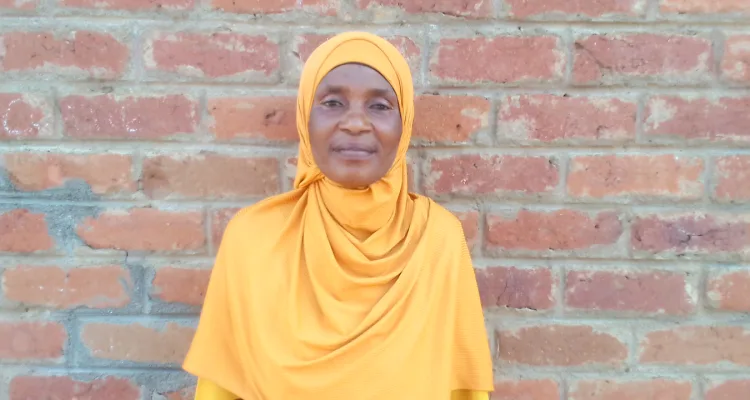
For decades, early marriages were proliferating in Balaka District due to harmful social norms as well as cultural and religious beliefs. Traditional initiation practices done as part of a rite passage when boys and girls have reached puberty have encouraged early sexual activities.
Practices such as “Ndakula” and “Jando” are dominant among the Yao people in the areas of Traditional Authorities Kalembo and Amidu in the district and have for a long time reportedly orchestrated young children to indulge themselves in early sexual intercourse.
Young children below the age of 18 are taught how to satisfy their partner in bed, compelling them to engage into early sexual intercourse as they try to test what they have been schooled by the “Angalibas” in initiation camps.
In Traditional Authorities Kalembo and Amidu, the Centre for Alternatives for Victimized Women and Children (CAVWOC) and the Family Planning Association of Malawi (FPAM) have taken positive strides as they are tirelessly working with support from Oxfam in Malawi to close the gap.
Traditional Authority Amidu credits ‘Her Future, Her Choice” project, which she says, has significantly strengthened issues of Sexual Reproductive Health and Rights as well as reducing cases of Gender Based Violence (GBV).
“Since the inception of the project in 2019, I have witnessed a remarkable change in my area. There has been a decline in cases of GBV as well as early marriages .People are now able to access the right information and quality SRH services such as contraceptive methods. In the past, these were issues to be discussed by elders in closed circles,” she says.
Amidu adds that, Traditional leaders have been in the past encouraging cultural practices which were putting the lives of young children at the risk of early pregnancies but also Sexually Transmitted Infections (STI’s) and even ruining their future prospects in the process. But now, the narrative has changed.
The chief says local leaders have now waged a fierce war against such treacherous cultural practices.
“My subordinates have now understood the negative implications of encouraging parents to send young children to initiation camps for circumscion. They advocate for voluntary male medical circumscion, which is clean at the same time safe,” said the chief.
In a bid to protect young children from such heinous acts which endangers their lives, local leaders under Traditional Authorities Kalembo and Amidu have formulated by-laws which they believe will help in safeguarding the rights of children at the same time helping them to achieve their full potential in life.
For instance, parents who are found to be sending their children into marriages before the age of 18 will be liable to pay a fine of MWK50, 000 and the marriage will be annulled.
That is not enough; greedy local leaders who are found on the wrong side of the by-laws will be suspended for a period of 6 months on top of paying a fine of MWK50, 000.
Malawi has the fourth highest child marriage rate in East and Southern Africa standing at approximately 42 percent, according to a recent report by the United Nations Children’s Emergency Fund (UNICEF).
The report reveals that 42 percent of girls marry before the age of 18 and 9 percent below the age of 15. Some boys, too, are caught in the cobweb with an estimated 1 percent of them marrying before the age of 15 and 6 percent below the age of 18.
It is no longer a hidden fact that, if not addressed, child marriages has severe social, economic and political repercussions.
Chairperson of Amidu Youth Network, Muhammad Adam is optimistic that the set by-laws, if properly enforced would lessen the burden imposed on children in the name of culture.
“For a long time, children here have been suffering in silence in the name of culture. As a result, many of them have been forced to drop-out of school and enter into early marriages, which has contributed in ruining their future prospects,” said Adam.
‘Her Future, Her Choice’ project officer for Cavwoc, Rightwell Nyirenda is excited with the positive efforts spearheaded by the Traditional leaders.
He said: “This is a clear manifestation that the leaders are committed to protecting adolescent girls and young women as well as adolescent boys and young men by protecting them against different forms of GBV,” said Nyirenda.
Emmanuel Devete, Assistant District Youth Officer for Balaka District says putting in place proper mechanisms aimed at counter-attacking various forms of GBV especially among young people is a way to go if Malawi is to achieve its Vision for inclusive and sustainable development.
Devete adds that it is crucial to safeguard the rights of youths as they make up a greater population of the country.
In Malawi, apart from being towed into early marriages due to poverty and cultural beliefs, young people face a number of hardships in relation to their Sexual Reproductive Health and rights.
For instance, poor knowledge of SRH rights and freedom to make informed choices about entering into sexual relationships and marriage .
They also face a challenge of limited knowledge about the risks involved in sexual relationships and child marriages.
“Her Future, Her Choice” program is being funded by Oxfam and the Global Affairs Canada (GAC) to empower adolescent girls and young women aged 10-24 to secure their sexual and reproductive health and rights in target regions of Ethiopia, Malawi, Mozambique, Zambia and Canada.
In Lilongwe, the project is being implemented in Traditional Authority Malili and Chimutu by Point of Progress and Family Planning Association of Malawi while in Balaka, the project is being implemented in T/A Amidu and T/A Kalembo by Centre for Alternatives for Victimized Women and Children and Family Planning Association of Malawi.
Oxfam in Malawi collaborates with the Ministry of Health and other Governments Ministries, Departments and Agencies, Parliamentary caucuses and committees, civil society organizations and the media in delivering the project interventions.
The project’s overall aim is to strengthen Sexual and reproductive health and Rights of young people.














